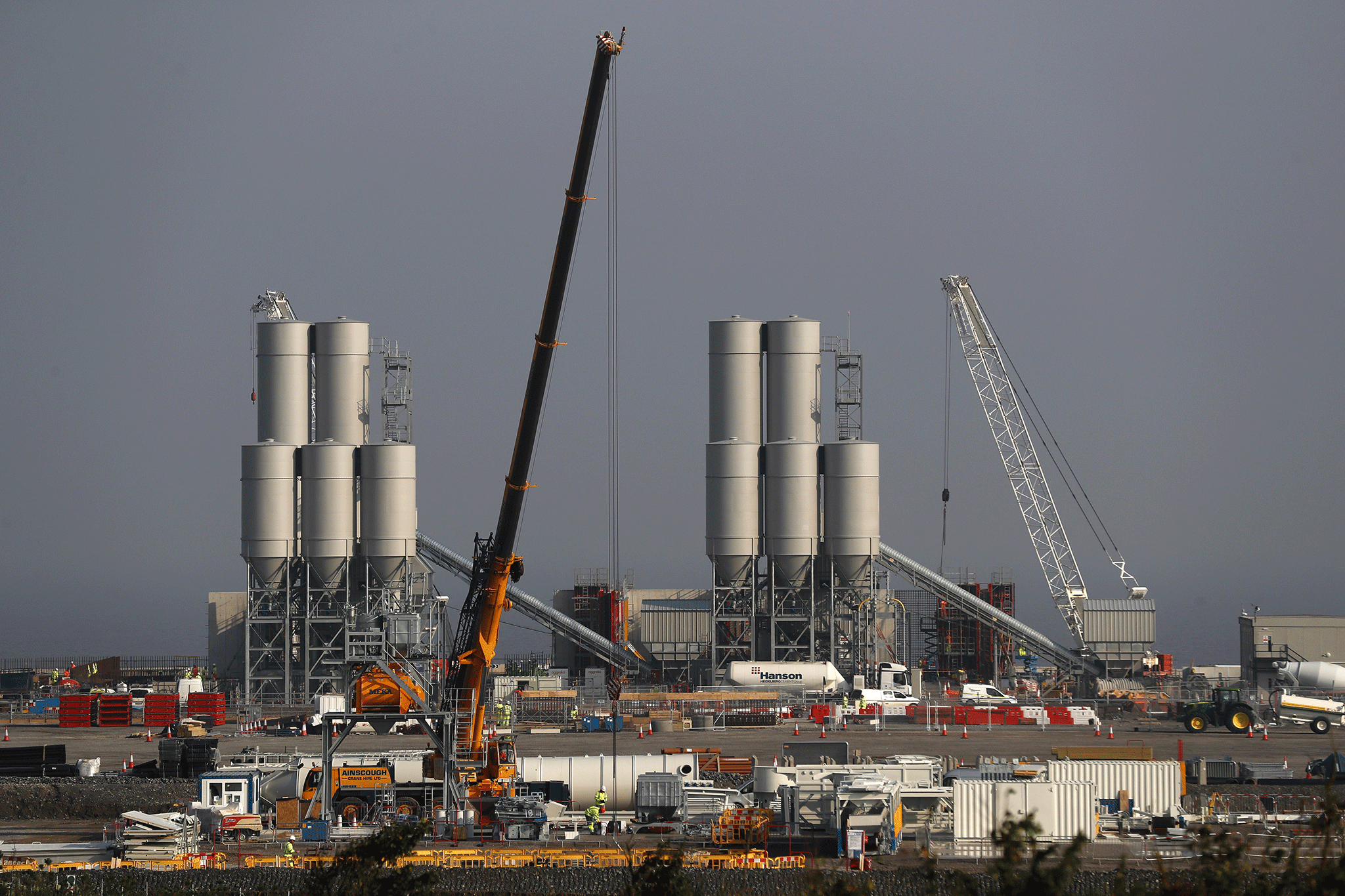The now-approved Hinkley could turn out to be an enormous white elephant – May was right to have her doubts
The fact remains that the price the Government has agreed that consumers should pay for power from Hinkley is twice that of prevailing wholesale electricity prices, which have fallen sharply since it was first conceived. What will Chancellor Philip Hammond do if he finds the developers at his door with their caps in their hands?

Your support helps us to tell the story
From reproductive rights to climate change to Big Tech, The Independent is on the ground when the story is developing. Whether it's investigating the financials of Elon Musk's pro-Trump PAC or producing our latest documentary, 'The A Word', which shines a light on the American women fighting for reproductive rights, we know how important it is to parse out the facts from the messaging.
At such a critical moment in US history, we need reporters on the ground. Your donation allows us to keep sending journalists to speak to both sides of the story.
The Independent is trusted by Americans across the entire political spectrum. And unlike many other quality news outlets, we choose not to lock Americans out of our reporting and analysis with paywalls. We believe quality journalism should be available to everyone, paid for by those who can afford it.
Your support makes all the difference.There are two questions Theresa May’s Government has answered with its decision to press ahead with plans for a new nuclear reactor at Hinkley Point in Somerset.
The first is whether nuclear power should play a role in the UK’s low carbon energy future. On this we agree with its affirmative response, albeit with qualifications.
The risks of nuclear energy are real, as is the need to take great care with the handling of the waste it produces. However, they pale in comparison to the risks posed by the world’s continuing reliance on fossil fuels.
While some environmentalists react with horror – perhaps understandably – at the mere mention of nuclear power, the cost-benefit analysis is in its favour when set against the disastrous consequences of the untrammelled emission of greenhouse gasses.
However, it is less easy to make a case for the Government’s positive answer to the second question – namely, whether Hinkley is the right way to go about incorporating nuclear energy. The irony of Britain having to rely on the French state-owned power company EDF – which is leading the project – to keep its lights on after storming out of Europe in a huff is a rich one.
Prime Minister May has sought to address concerns about the issue, concerns that are even more acute when it comes to the question of China. China is, after all, providing a third of the project’s £18bn of funding, by taking measures to prevent EDF from selling its stake without Government approval. It will also take a “special share” in all future projects, to further allay public concern.
That is an important step, and it should not be forgotten that there are benefits to be drawn from the French and Chinese involvement. It proves that Britain can still work with a European partner for starters.
While the question of China is more vexed, given its behaviour towards its neighbours and its lamentable human rights record, there are real benefits to be drawn from increased cooperation with what will become the world’s largest economy before too long.
These questions are less important than that of the economics of this particular project: many agencies have raised doubts, not least the National Audit Office.
The fact remains that the price the Government has agreed that consumers should pay for power from Hinkley is twice that of prevailing wholesale electricity prices, which have fallen sharply since it was first conceived.
The NAO estimates that British homes and businesses could collectively pay £27bn extra over the 30-year period of the guarantee, quite apart from the ever-present risk of cost overruns during the construction of a development of this scale.
What will Chancellor Philip Hammond do if he finds the developers at his door with their caps in their hands? It will be extremely hard for him to say “non” if he does, even though he should.
Even with the price guarantee, the profitability to EDF remains open to debate, enough to have forced board-level resignations at the company, including that of the finance director. This clearly holds the potential for a cross-channel disaster.
Ms May’s decision to delay the project to take a fresh look was, therefore, a sensible one. However, with the UK’s generating capacity falling as old plants come offline, and given the effort and political capital already expended on Hinkley, it is perhaps understandable that she didn’t feel she could write off a project she was never said to be entirely keen on.
She must now, however, be prepared to live with the fact that one of the legacies of her Government may be a vast white elephant that will be paid for by generations to come.
Join our commenting forum
Join thought-provoking conversations, follow other Independent readers and see their replies
Comments